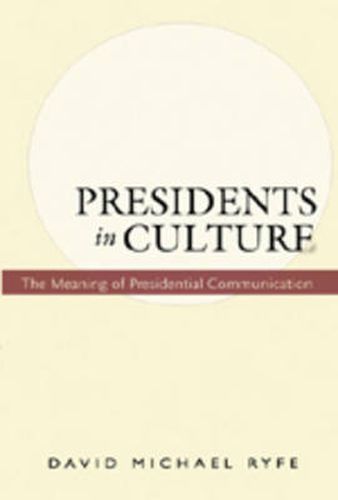Readings Newsletter
Become a Readings Member to make your shopping experience even easier.
Sign in or sign up for free!
You’re not far away from qualifying for FREE standard shipping within Australia
You’ve qualified for FREE standard shipping within Australia
The cart is loading…






Whether writing from the perspective of rhetoric or political science, scholars of presidential communication often assume that the ultimate meaning of presidential rhetoric lies in whether it achieves policy success. In this book, David Michael Ryfe argues that although presidential rhetoric has many meanings, one of the most important is how it rhetorically constructs the practice of presidential communication itself. Drawing upon an examination of presidential rhetoric in the twentieth century - from Theodore Roosevelt to Franklin D. Roosevelt, from Ronald Reagan to Bill Clinton - Ryfe surveys the shifting meaning of presidential communication. In doing so, he reveals that the so-called public or rhetorical presidency is not one fixed entity, but rather a continuously negotiated discursive construct.
$9.00 standard shipping within Australia
FREE standard shipping within Australia for orders over $100.00
Express & International shipping calculated at checkout
Whether writing from the perspective of rhetoric or political science, scholars of presidential communication often assume that the ultimate meaning of presidential rhetoric lies in whether it achieves policy success. In this book, David Michael Ryfe argues that although presidential rhetoric has many meanings, one of the most important is how it rhetorically constructs the practice of presidential communication itself. Drawing upon an examination of presidential rhetoric in the twentieth century - from Theodore Roosevelt to Franklin D. Roosevelt, from Ronald Reagan to Bill Clinton - Ryfe surveys the shifting meaning of presidential communication. In doing so, he reveals that the so-called public or rhetorical presidency is not one fixed entity, but rather a continuously negotiated discursive construct.